 |
urikor.net
Все о слепой машинописи и клавиатурных тренажерах
|
| Предыдущая тема :: Следующая тема
|
| Автор |
Сообщение |
Urikor
Site Admin

Зарегистрирован: 05.08.2004
Сообщения: 3447
Откуда: Lutugino, Donbass
|
 Добавлено: Вт Июн 24, 2008 6:15 pm Заголовок сообщения: Typewriting Behavior by August Dvorak, et al., 1936 Добавлено: Вт Июн 24, 2008 6:15 pm Заголовок сообщения: Typewriting Behavior by August Dvorak, et al., 1936 |
 |
|
Сегодня получил посылку от Михаила Портнова - книгу Дворака.
Ессно, она на английском языке.
Около 500 страниц.
Что будем делать с подарком? 
Моя начальница в этот понедельник должна ехать в Москву в командировку.
Могу передать книгу Норе Максовне или Автандилине.
Может, получится что-то перевести 
В любом случае, думаю, в руках профессионалов она принесет больше пользы.
Есть предложения? |
|
| Вернуться к началу |
|
 |
voldemar
Генерал-майор


Зарегистрирован: 11.09.2007
Сообщения: 3738
|
 Добавлено: Вт Июн 24, 2008 8:09 pm Заголовок сообщения: Добавлено: Вт Июн 24, 2008 8:09 pm Заголовок сообщения: |
 |
|
| А можно хотя бы оглавление отсканировать и разместить здесь на сайте? Чтобы знать хоть, о чём там речь идёт. |
|
| Вернуться к началу |
|
 |
Автандилина
AvtandiLine
Зарегистрирован: 06.12.2005
Сообщения: 3238
Откуда: Москва и Санкт-Петербург
|
 Добавлено: Вт Июн 24, 2008 11:50 pm Заголовок сообщения: Добавлено: Вт Июн 24, 2008 11:50 pm Заголовок сообщения: |
 |
|
О, какой великолепный подарок! Браво Михаилу Портнову.
Наверное, очень хорошо, если на ГЗОСе будет эта книга, реальный экземпляр. А Вы, Юрий, сможете выпустить из рук эдакую драгоценность? 
Как жаль, что в этот раз только одна начальница едет в Москву. 
А уж виртуальные экземпляры с него сделаем. (Не_знаю, в какой срок, но сделаем.)
У меня сейчас на очереди "изготовление" виртуальной копии учебника Дмитриевских. А затем могла бы и в "Двораке" поучаствовать.
Толстые книги, наверное, действительно лучше сканировать, а не_перенабирать заново. Хотя я-то люблю перенабирать, это шанс вчитаться повнимательнее )) но 500 страниц для набора многовато.
Что скажет по этому поводу Владимир Петрович? 
Нора Максовна в эти дни, наверное, в Москве (т.е., еще не_уехала в отпуск).
А я сейчас в Петербурге.
_________________
http://klava.tel быстрая справка, http://www.liveinternet.ru/community/faq_avtandiline/post153540114/ Амишка (AMi) и ФАВТ |
|
| Вернуться к началу |
|
 |
Владимир Петрович
lieutenant

Зарегистрирован: 08.01.2007
Сообщения: 182
|
 Добавлено: Ср Июн 25, 2008 12:40 am Заголовок сообщения: Добавлено: Ср Июн 25, 2008 12:40 am Заголовок сообщения: |
 |
|
| Автандилина писал(а): | Толстые книги, наверное, действительно лучше сканировать, а не_перенабирать заново. Хотя я-то люблю перенабирать, это шанс вчитаться повнимательнее )) но 500 страниц для набора многовато.
Что скажет по этому поводу Владимир Петрович?  |
Сканировать, однозначно, сканировать. С удовольствием сделаю это для истории. |
|
| Вернуться к началу |
|
 |
Urikor
Site Admin

Зарегистрирован: 05.08.2004
Сообщения: 3447
Откуда: Lutugino, Donbass
|
 Добавлено: Ср Июн 25, 2008 5:34 am Заголовок сообщения: Добавлено: Ср Июн 25, 2008 5:34 am Заголовок сообщения: |
 |
|
Тогда давайте определяться, кто встретит и получит книгу у моей начальницы 
Ориентировочно она приедет в Москву 1 июля и пробудет до 4. |
|
| Вернуться к началу |
|
 |
Urikor
Site Admin

Зарегистрирован: 05.08.2004
Сообщения: 3447
Откуда: Lutugino, Donbass
|
 Добавлено: Ср Июн 25, 2008 12:02 pm Заголовок сообщения: Добавлено: Ср Июн 25, 2008 12:02 pm Заголовок сообщения: |
 |
|
Отсканировал обложку и содержание.

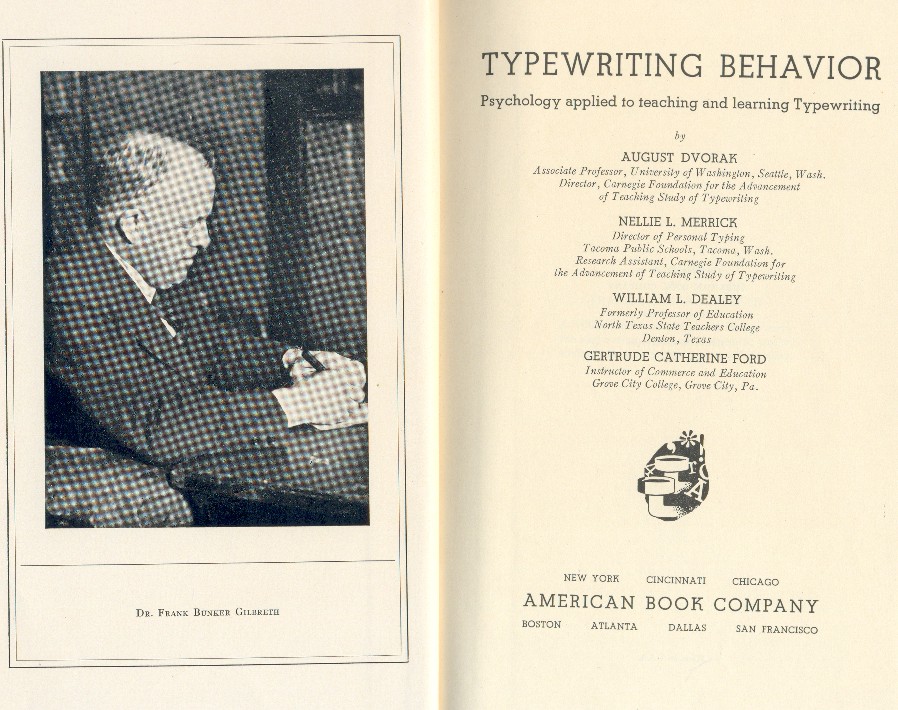

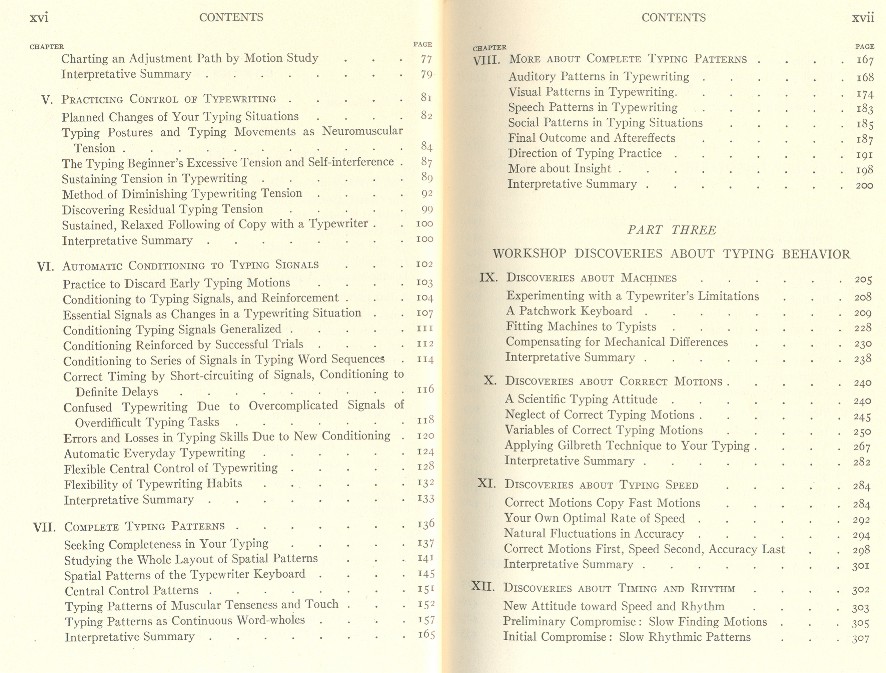


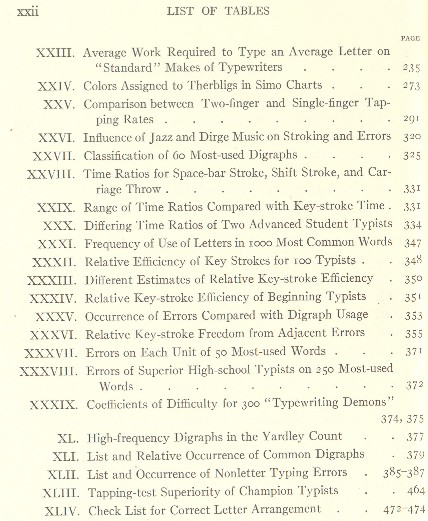 |
|
| Вернуться к началу |
|
 |
Mikhail Portnov
senior lieutenant

Зарегистрирован: 22.06.2006
Сообщения: 206
Откуда: Silicon Valley, CA
|
 Добавлено: Ср Июн 25, 2008 5:15 pm Заголовок сообщения: Добавлено: Ср Июн 25, 2008 5:15 pm Заголовок сообщения: |
 |
|
От себя хочу посоветовать отсканировать и вывесить несколько страниц, составляющих введение к книге. Там авторы приводят основные выводы своего исследования. Сама по себе книга - это отчет о проведенной экспериментальной работе, довольно нудный и интересный только для узкого специалиста. Но все выводы уложились на несколько страниц. Некоторые из них меня, например, озадачили. Чтобы понять откуда такие выводы надо читать сами эксперименты.
Но, по любому, выводы исключительно интересные. И с переводом 4-5 страниц проблем не возникнет.
Хочу отдельно выразить восхищение и признательность Автандилине за книгу Дмитриевских - это настоящий подвиг. Это, для меня, самая интересная и содержательная книга о машинописи на русском языке, написанная чрезвычайно грамотными людьми. Жду с нетерпением. |
|
| Вернуться к началу |
|
 |
Владимир Петрович
lieutenant

Зарегистрирован: 08.01.2007
Сообщения: 182
|
 Добавлено: Ср Июн 25, 2008 9:41 pm Заголовок сообщения: Добавлено: Ср Июн 25, 2008 9:41 pm Заголовок сообщения: |
 |
|
| Urikor писал(а): | Тогда давайте определяться, кто встретит и получит книгу у моей начальницы 
Ориентировочно она приедет в Москву 1 июля и пробудет до 4. |
Видимо, придется это сделать мне...
Подробности в ЛС. |
|
| Вернуться к началу |
|
 |
Urikor
Site Admin

Зарегистрирован: 05.08.2004
Сообщения: 3447
Откуда: Lutugino, Donbass
|
 Добавлено: Чт Июн 26, 2008 7:22 am Заголовок сообщения: Добавлено: Чт Июн 26, 2008 7:22 am Заголовок сообщения: |
 |
|
Начальницу зовут Марина Ивановна Деркач.
Приезжает она в Москву 30 июня, в понедельник.
Поезд Луганск-Москва.
Вокзал - Павелецкий.
Время прибытия, что-то около 15 часов.
Вагон 2 (если не изменяет память, то это в хвосте поезда будет).
Владимир, точно будете встречать? |
|
| Вернуться к началу |
|
 |
Автандилина
AvtandiLine
Зарегистрирован: 06.12.2005
Сообщения: 3238
Откуда: Москва и Санкт-Петербург
|
 Добавлено: Чт Июн 26, 2008 8:56 am Заголовок сообщения: Добавлено: Чт Июн 26, 2008 8:56 am Заголовок сообщения: |
 |
|
| Mikhail Portnov писал(а): | признательность Автандилине за книгу Дмитриевских ...
Жду с нетерпением. |
Спасибо, пока набрала страниц ~10 всего-то...  Книга очень содержательная, согласна! А ведь раздобыли мы ее благодаря ссылке от Михаила Портнова )))) Книга очень содержательная, согласна! А ведь раздобыли мы ее благодаря ссылке от Михаила Портнова ))))
Упражнения думаю вставлять как картинки, а текст - набором.
Такой комбинированный макет - в библиотеку ГЗОС, а в прозрачных гифах - на мой сайт. Как и "Указатель" М.Портнова.
_________________
http://klava.tel быстрая справка, http://www.liveinternet.ru/community/faq_avtandiline/post153540114/ Амишка (AMi) и ФАВТ |
|
| Вернуться к началу |
|
 |
Владимир Петрович
lieutenant

Зарегистрирован: 08.01.2007
Сообщения: 182
|
 Добавлено: Чт Июн 26, 2008 3:34 pm Заголовок сообщения: Добавлено: Чт Июн 26, 2008 3:34 pm Заголовок сообщения: |
 |
|
| Urikor писал(а): | | Владимир, точно будете встречать? |
Написал ЛС.
Буду встречать - куда денусь, уже обещал  |
|
| Вернуться к началу |
|
 |
Urikor
Site Admin

Зарегистрирован: 05.08.2004
Сообщения: 3447
Откуда: Lutugino, Donbass
|
 Добавлено: Пт Июн 27, 2008 7:49 am Заголовок сообщения: Добавлено: Пт Июн 27, 2008 7:49 am Заголовок сообщения: |
 |
|
Ок, договорились 
Фотку выслал на мыло. |
|
| Вернуться к началу |
|
 |
voldemar
Генерал-майор


Зарегистрирован: 11.09.2007
Сообщения: 3738
|
 Добавлено: Пт Июн 27, 2008 12:51 pm Заголовок сообщения: Добавлено: Пт Июн 27, 2008 12:51 pm Заголовок сообщения: |
 |
|
| Юрий, так как насчёт совета Михаила Портнова отсканировать и вывесить введение? |
|
| Вернуться к началу |
|
 |
Urikor
Site Admin

Зарегистрирован: 05.08.2004
Сообщения: 3447
Откуда: Lutugino, Donbass
|
 Добавлено: Пт Июн 27, 2008 5:06 pm Заголовок сообщения: Добавлено: Пт Июн 27, 2008 5:06 pm Заголовок сообщения: |
 |
|
Сделал 


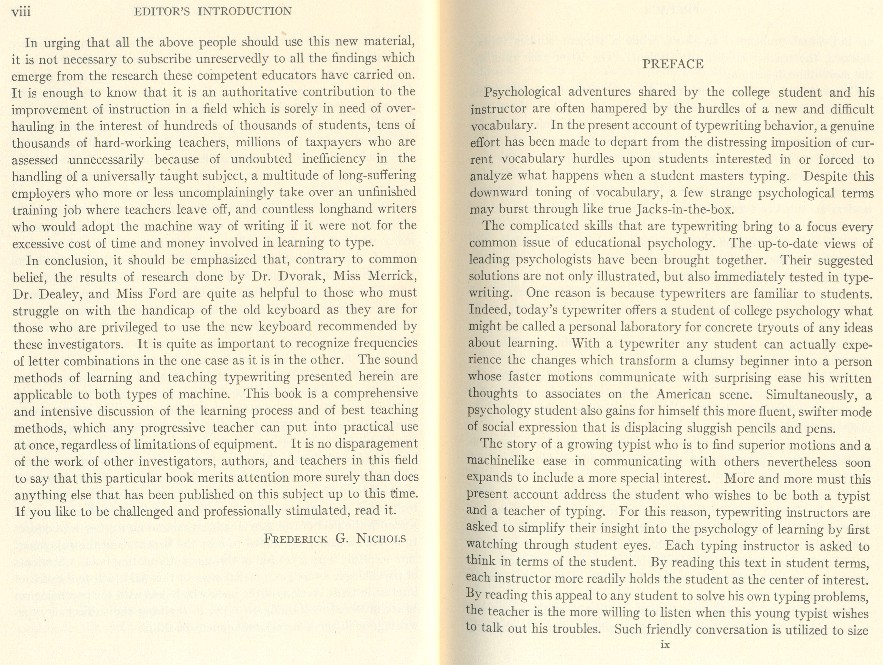

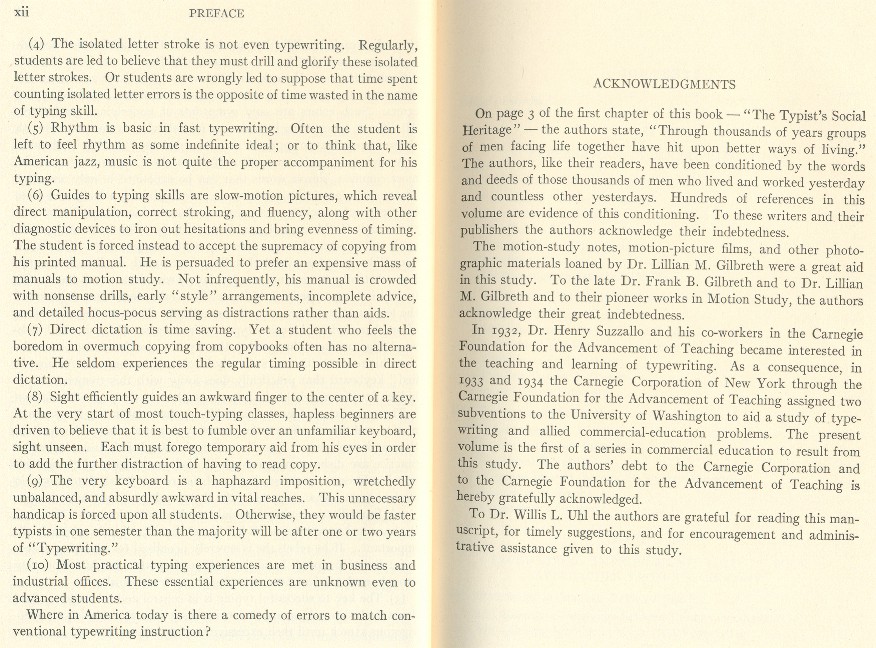 |
|
| Вернуться к началу |
|
 |
voldemar
Генерал-майор


Зарегистрирован: 11.09.2007
Сообщения: 3738
|
 Добавлено: Пт Июн 27, 2008 7:58 pm Заголовок сообщения: Добавлено: Пт Июн 27, 2008 7:58 pm Заголовок сообщения: |
 |
|
Юрий, спасибо.
Что-то я, честно сказать, не заметил каких-либо оригинальных выводов в этом предисловии. Или имелось ввиду перечисление недостатков существующего на тот момент обучения? |
|
| Вернуться к началу |
|
 |
Urikor
Site Admin

Зарегистрирован: 05.08.2004
Сообщения: 3447
Откуда: Lutugino, Donbass
|
 Добавлено: Вс Июн 29, 2008 4:34 pm Заголовок сообщения: Добавлено: Вс Июн 29, 2008 4:34 pm Заголовок сообщения: |
 |
|
Владимир, начальница сегодня выехала - завтра, в понедельник встречайте 
---------------------
Ну что там, встреча состоялась? 
Книгу забрали? |
|
| Вернуться к началу |
|
 |
Владимир Петрович
lieutenant

Зарегистрирован: 08.01.2007
Сообщения: 182
|
 Добавлено: Вт Июл 01, 2008 7:44 am Заголовок сообщения: Добавлено: Вт Июл 01, 2008 7:44 am Заголовок сообщения: |
 |
|
Встреча произошла вчера. Без особых проблем узнал Вашу начальницу, Юрий, и забрал у нее книжку.
Теперь надо будет выкроить время ее отсканировать...
PS Никогда бы не подумал, что поезд Луганск-Москва встречает столько народу, как видел вчера!  |
|
| Вернуться к началу |
|
 |
Urikor
Site Admin

Зарегистрирован: 05.08.2004
Сообщения: 3447
Откуда: Lutugino, Donbass
|
 Добавлено: Вт Июл 01, 2008 7:47 am Заголовок сообщения: Добавлено: Вт Июл 01, 2008 7:47 am Заголовок сообщения: |
 |
|
А то! 
Братья славяне, разделенные кордоном, находят друг друга  )))))))) )))))))) |
|
| Вернуться к началу |
|
 |
NM
major

Зарегистрирован: 07.08.2006
Сообщения: 524
Откуда: Москва
|
 Добавлено: Сб Июл 19, 2008 10:24 am Заголовок сообщения: Добавлено: Сб Июл 19, 2008 10:24 am Заголовок сообщения: |
 |
|
Большое спасибо Михаилу Портнову за книгу. Обязательно переведем, отсканируем и дадим прочитать всем желающим.
И спасибо Юрию за то, что передал книгу в библиотеку ГЗОСа.
Теперь уж точно ГЗОСу быть и собирать библиотеку!
НМ
_________________
GZOS.RU INTERSTENO.RU
Тренировки круглый год! |
|
| Вернуться к началу |
|
 |
voldemar
Генерал-майор


Зарегистрирован: 11.09.2007
Сообщения: 3738
|
 Добавлено: Чт Авг 07, 2008 1:35 am Заголовок сообщения: Добавлено: Чт Авг 07, 2008 1:35 am Заголовок сообщения: |
 |
|
Обязательно переведем,
Ох, вы даже не представляете себе, что это за труд. Сейчас перечитывал вступление, на английский не жалуюсь, но многое так и осталось непонятным. На мой взгляд, язык довольно тяжеловатый, и я бы даже сказал, громоздкий... |
|
| Вернуться к началу |
|
 |
Mikhail Portnov
senior lieutenant

Зарегистрирован: 22.06.2006
Сообщения: 206
Откуда: Silicon Valley, CA
|
 Добавлено: Вт Авг 26, 2008 2:02 am Заголовок сообщения: Добавлено: Вт Авг 26, 2008 2:02 am Заголовок сообщения: |
 |
|
| Из разговора с Норой Максовной я понял, что у нее не хватает рук отсканировать книжку. Есть в Москве кто-то, кто мог бы ей помочь? |
|
| Вернуться к началу |
|
 |
Nestor
major

Зарегистрирован: 21.12.2008
Сообщения: 638
|
|
| Вернуться к началу |
|
 |
Nestor
major

Зарегистрирован: 21.12.2008
Сообщения: 638
|
 Добавлено: Чт Июл 08, 2010 12:31 pm Заголовок сообщения: Добавлено: Чт Июл 08, 2010 12:31 pm Заголовок сообщения: |
 |
|
Перепечатал 9 страниц введения, надеюсь ошибок не так много (если заметите что-нибудь — напишите, исправлю). Сейчас заканчиваю перевод и выложу его в ближайшее время, так что если вы недостаточно хорошо читаете на английском можно подождать перевода.
| Цитата: | Editors’s introduction
__Typewriting is an essential part of basic preparation for many office positions. It is a desirable element in programs of training designed to prepare for unspecialized office work. It is rightly emphasized as a legitimate part of any full program of business education.
__Typewriting is a facilitating subject which, if properly presented, can be made available to many who do not now have the time for it. College students and educated people in general can make good use of typing ability in the conduct of their personal affairs. The use of this writing device should be greatly extended among those who have no real vocational need for it.
__As at present taught, typewriting is about the most time-consuming subject in any educational program on any level. This is not necessarily a reflection on the rank and file of typewriting teachers. They have made the best possible use of available instruction material and methods while awaiting results of research in this and the related field of educational psychology. Those who normally would pursue typewriting for its personal utility value are loath to do so because of the time element involved. Those who pursue it for vocational reasons devote more time to it than they can afford – far more than should be required – often at the expense of often vocational and background subjects. Between two and three full years – often more – are needed for the rather low degree of mastery required in this subject. This is too much. What can be done about it?
__In the first place, the aims for this course can be reduced to two: (I) mastery of typewriting techniques and (2) development of typing ability through adequate instruction and practice in the application of these techniques in dealing with practical typing situations.
__In the second place, the time-consuming, discouraging nature of much of our instruction material may be conceded in the light of results obtained with new material resulting from scientific study and experimentation.
__In the third place, a scientific attitude may be adopted in the teaching of this subject. The results of research in the form of better methods may be accepted, even though they do violence to long-established procedures.
__Simplification and clarification of aims, modernization of instruction material, and the development of scientifically sound instructional methods should go far toward establishing typewriting in its rightful place as a part of public and private programs of education.
__It will be difficult for older teachers. And younger ones who have been taught by them, to concede the possibility that the requirement of “accuracy” has been overdone, that “technique” (form, in the athlete’s sense) is to be striven for at all stages in the pupil’s progress, that “speed” or fluency in the early stages of training should be developed, even at the expense of accuracy, that ability, that making a fetish of touch typewriting at the outset in student training is a serious barrier to progress in learning to type, and that much more direct dictation is a prime requisite in the training of a typist. But these possibilities and others are well worth exploring in the interest of more efficient teaching.
__During the last decade of the nineteenth century and the first decade of the present century most of the methods impliedly challenged above were established as a result of bitter controversy. They represented real progress over what had been accepted practice up to that time, but their genesis was by no means sufficiently scientific in the modern sense to justify attaching to them the qualities of infallibility and immortality. Yet these methods and beliefs have persisted with relatively little change through the score or more of years since their adoption. This may or may not account for the fact that while championship typing records in words a minute have been improved, it still requires as much, if not more, time to train one to operate a typewriter up to reasonable standards required for personal and vocational work as it did a score or more years ago. In the light of progress made in the development and practice of other manipulative skills it is difficult to escape the conviction that there has been serious lagging in this field of training and that this retardation is largely due to the absence of scientific research and the consequent persistence of traditional aims, instruction material and methods of teaching.
__For the past several years, aided by financial grants, unusual facilities for pursuing research studies, and adequate opportunity for practical experimentation, Dr. Dvorak, Miss Merrick, Dr. Dealey, and Miss Ford have labored unceasingly in an effort to find out just why so time is wasted in the teaching of typewriting, and why the results of such long courses are disappointing. The results of their investigation are set forth in this book which, unlike most reports of research, is not only challenging, stimulation, and enlightening, but also entertaining and easy to read. It does not ignore the “tricks of the trade”; on the contrary it validates many old ones and presents many new ones backed by the results of research. But it goes far beyond these somewhat superficial aids in teaching and directs attention to modern educational psychology and its real implications for better teaching in this field. It bases its methodology on a penetrating analysis of the complex activity which is typewriting, on accepted principles of psychology, on the results of the best work in the field of motion study, and on the outcomes of a prodigious amount of work to determine letter-combination frequencies. It is a book in which factual data leave little room for personal impressions – real distinction, as most students of the literature in this field will admit.
__Trainers of typewriting teachers will find this book indispensable. Progressive teachers of typewriting, experienced and inexperienced, should turn to it for the answers to many perplexing questions which have intrigued them. Mature students of typewriting in junior colleges, universities, and the better private schools will find this book most helpful in their attempt to master accepted typewriting techniques and to develop skill in their practical applications. No leader in the field of commercial education and no teacher who desires to become a leader can afford to miss the benefits and the enjoyment sure to result from a perusal of this most stimulating book. Students of psychology, as well as practitioners in this field, will find much of interest in those sections of the book which deal with the psychological issues involved in learning to type, in teaching the subject of typewriting, or in the general development of skill.
__In urging that all the above people should use this new material, it is not necessary to subscribe unreservedly to all the findings which emerge from the research these competent educators have carried on. It is enough to know that it is an authoritative contribution to the improvement of instruction in a field which is sorely in need of overhauling in the interest of hundreds of thousands of students, tens of thousands of hard-working teachers, millions of taxpayers who are assessed unnecessarily because of undoubted inefficiency in the handling of a universally taught subject, a multitude of long-suffering employers who more or less uncomplainingly take over an unfinished training job where teachers leave off, and countless longhand writers who would adopt the machine way of writing if it were not for the excessive cost of time and money involved in learning to type.
__In conclusion, it should be emphasized that, contrary to common belief, the results of research done by Dr. Dvorak, Muss Merrick, Dr. Dealey, and Miss Ford are quite as helpful to those who must struggle on with the handicap of the old keyboard as they are for those who are privileged to use the new keyboard recommended by these investigators. It is quite as important to recognize frequencies of letter combinations in the one case as it is in the other. The sound methods of learning and teaching typewriting presented herein are applicable to both types of machine. This book is a comprehensive and intensive discussion of the learning process and of best teaching methods, which any progressive teacher can put into practical use at once, regardless of limitations of equipment. It is no disparagement of the work of other investigators, authors, are teachers in this field to say that this particular book merits attention more surely than does anything else that has been published on this subject up to this time. If you like to be challenged and professionally stimulated, read it.
Frederick G. Nichols
Preface
__Psychological adventures shared by the college student and his instructor are often hampered by the hurdles of a new and difficult vocabulary. In the present account of typewriting behavior, a genuine effort his been made to depart from the distressing imposition of current vocabulary hurdles upon students interested in or forced to analyze what happens when a student masters typing. Despite this downward toning of vocabulary, a few strange psychological terms may burst through like true Jacks-in-the-box. The complicated skills that are typewriting bring to a focus every common issue of educational psychology. The up-to-date views of leading psychologists have been brought together. Their suggested solutions are not only illustrated, but also immediately tested in typewriting. One reason is because typewriting are familiar to students. Indeed, today’s typewriter offers a students of college psychology what might be called a personal laboratory for concrete tryouts of any ideas about learning. With a typewriter any student can actually experience the changes which transform a clumsy beginner into a person whose faster motions communicate with surprising ease his written thoughts to associates on the American scene. Simultaneously, a psychology student also gains for himself this more fluent. Swifter mode of social expression that is displacing sluggish pencils and pens.
__The story of a growing typist who is to find superior motions and a machinelike ease in communicating with others nevertheless soon expands to include a more special interest. More and more must this resent account address the student who wishes to be both a typist and a teacher off typing. For this reason, typewriting instructors are asked to simplify their insight into the psychology of learning by first watching through student eyes. Each typing instructor is asked to think in terms of the student. By reading this text in student terms, each instructor more readily holds the student as the center of interest. By reading this appeal to any student to solve his own typing problems, the teacher is the more willing to listen when this young typist wishes to talk out his troubles. Such friendly conversation is utilized to size up individual problems. In short, whole a student studies typing motions, the teacher studies the student. The latter task calls for the more difficult learning.
__Conventional psychology, accordingly, is rewritten in student terms for the student who is analytical about typewriting and for the typing instructor, in order to bring out five ideas about learning. At the same time, as an aid in simplifying a widening scope as the book expands, particular pages are specially selected to appeal to the psychology student, to the student typist, or to the instructor observing through student eyes. Detailed reading suggestions for these different readers accompany every chapter. What, then, are five ideas about learning which are of interest to all these readers?
__1) So-called habits, particularly typing habits, are shifting, conditioned behavior. As an illustration of conditioning to countless slight signals, or cues, typewriting is admirably clear-cut.
__2) Typing improvements are complete behavior patterns. Each better tying motion that appears does so as a new, complete behavior patterns. Each better typing motion that appears does so as a new, complete pattern, often called by the German term, Gestalt. Such motions are popularly referred to as “good form.” Typewriting form, unlike conditioning. The student can learn to observe.
__3) The direction of typing progress is itself a striking gradient or slope in muscular activity. Along such slopes each student is impelled toward an easier balance between himself and his typing task in its classroom setting.
__4) Learning to typewrite, like all learning, is chiefly student thinking along a path charted to reduce difficulties and thus reach desired results.
__5) Today this is the fascination path of motion study. Long since cleared by Frank B. Gilbreth and associated experts. Glimpses of informal Gilbreth motion-study notes help to clarify this path. These notes and micromotion films of championship typing form, which have helped us by Dr.Lillian M. Gilbreth of Montchair.
__The smoothness with which work finally flows through the typewriter is no accident. It is a gradual achievement, which crowns the thinking through of each felt difficulty, day by day. The available aids, accordingly, are marshaled for the student’s self-directed study of his own difficult behavior. He looks into his own world, within or without the classroom, to uncover the conditions that surround repeated typing errors. Such errors are only symptoms of underlying interference. All difficult typewriting behavior, of misbehavior, is thus treated, with the same psychiatric approach now accorded any “difficult” behavior.
__As an important instance of interference. There are errors on even the most common, simple words that can be explained in only one way. These errors are intruding from a crude keyboard, a hang-over from last century’s machines with their sewing-machine lines. Clumsy foot throw, ugly Gothic capitals, and blind writing. This is the only path-work” still preserved in an otherwise modern typewriter. This “universal” keyboard needlessly handicaps one fourth of all ordinary typing. Actually is uses no genuine home row, but tosses the typing mostly into an upper row of keys. It overburdens lesser fingers and the left hand to an extent quite unrealized. It forces frequent idling of one hand while the other types entire words. Excessive and awkward finger motions that weaken the rhythm, tire the student, and mistreat his record with errors silently block rapid progress. A “simplified” keyboard that practically does away with this tremendous yet hidden interference holds its important place in the pages that follow.
__There are no overcaustic broadsides against continuing ignorance of motion and time studies on the part of typing students by the hundred thousands each year. The effects of misleading beliefs and misdirected practice are disheartening enough in their own right. Although this text si addressed to the student, each instructor is asked to check, in student terms, what seem to be the shortcomings of customary usage:
__1) Immediate accuracy is of only moderate importance. Yet even the most awkward beginner is led to feel that “perfect” copying is all-important. If he rebels, he is severely penalized of his rising speed.
__2) Suitable speed is of immediate importance. Monotonously enough, each student hears warnings to go more slowly.
__3) The key to successful typing is in control and relaxation. Students feel themselves urged continuously into a defeatist or over-vigorous attack until their excessive tension injures control.
__4) The isolated letter stroke is not even typewriting. Regularly, students are led to believe that they must drill and glorify these isolated letter strokes. Or students are wrongly led to suppose that time spent counting isolated letter errors is the opposite of time wasted in the name of typing skill.
__5) Rhythm is basic in fast typewriting. Often the student is left to feel rhythm as some indefinite ideal; or to think that, like American jazz, music is not quite the proper accompaniment for his typing.
__6) Guides to typing skills are slow-motion pictures, which reveal direct manipulation, correct stroking, and fluency, along with other diagnostic devices to iron out hesitations and bring evenness of timing. The student if forced instead to accept the supremacy of copying from his printed manual. He is persuaded to prefer an expensive mass of manuals to motion study. Not infrequently, his manual is crowded with nonsense drills, early “style” arrangements, incomplete advice, and detailed hocus-pocus serving as distractions rather than aids.
__7) Direct dictation is time saving. Yet a student who feels the boredom in overmuch copying from copybooks often has no alternative. He seldom experiences the regular timing possible in direct dictation.
__8) Sight efficiently guides an awkward finger to the center of a key. At the very start of most touch-typing classes, hapless beginners are driven to believe that it is best to fumble over an unfamiliar keyboard, sight unseen. Each must forego temporary aid from his eyes in order to add the further distraction of having to read copy.
__9) The very keyboard is a haphazard imposition, wretchedly unbalanced, and absurdly awkward in vital reaches. This unnecessary handicap is forced upon all students. Otherwise, they would be faster typists in one semester than the majority will be after one or two years of “Typewriting.”
__10) Most practical typing experiences are met in business and industrial offices. These essential experiences are unknown even to advanced students.
__Where in America today is there a comedy of errors to match conventional typewriting instruction?
__On page 3 of the first chapter of this book – “The Typist’s Social Heritage”- the authors state, “Through thousands of years groups of men facing life together have hit upon better ways of living.” The authors, like their readers, have been conditioned by the words and deeds of those thousands of men who lived and worked yesterday and countless other yesterdays. Hundreds of references in this volume are evidence of this conditioning. To these writers and their publishers the authors acknowledge their indebtedness.
__The motion-study notes, motion-picture films, and other photo-graphic materials loaned by Dr. Lillian M. Gilbreth were a great aid in this study. To the late Dr. Frank B. Gilbreth and to Dr. Lillian M. Gilbreth and to their pioneer works in Motion Study, the authors acknowledge their great indebtedness.
__In 1932, Dr. Henry Suzzallo and his co-workers in the Carnegie Foundation for the Advancement of Teaching became interested in the teaching and learning of typewriting. As a consequence, in 1933 and 1934 the Carnegie Corporation of New York through the Carnegie Foundation for the Advancement of Teaching assigned two subventions to the University of Washington to aid a study of typewriting and allied commercial-education problems. The present volume is the first of a series in commercial education to result from this study. The authors’ debt to the Carnegie Corporation and to the Carnegie Foundation for the Advancement of Teaching is hereby gratefully acknowledged.
__To Dr. Willis L. Uhl the authors are grateful for reading this manuscript, for timely suggestions, and for encouragement and administrative assistance given to this study. |
_________________
Учусь объясняться с компьютером на пальцах.
http://www.klavogonki.ru/profile/76392 |
|
| Вернуться к началу |
|
 |
|
|
Вы не можете начинать темы
Вы не можете отвечать на сообщения
Вы не можете редактировать свои сообщения
Вы не можете удалять свои сообщения
Вы не можете голосовать в опросах
|
|